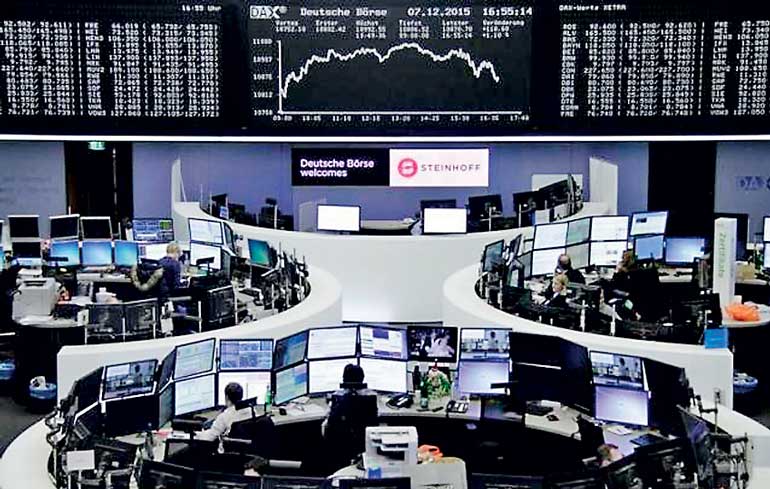Sunday Feb 22, 2026
Sunday Feb 22, 2026
Wednesday, 9 December 2015 00:00 - - {{hitsCtrl.values.hits}}

LONDON, (Reuters): A surprise leap in Chinese commodity imports helped steady the ship for oil prices and energy-exposed currencies on Tuesday, although world stocks fell for the second day emerging market bourses hit a two-month low.
Investors were still struggling for confidence after Monday’s 6% plunge in oil had whacked it to its lowest level of the year and the prospect of the first US interest rate hike in almost a decade next week also loomed.
European shares were down 1% at their lowest level since mid October as energy and mining stocks fell sharply again and futures prices pointed to Wall Street starting firmly in the red too.
Currencies of major oil exporting nations such as the Canadian dollar and the Norwegian crown remained edgy despite their stabilisation, while safe-havens like the yen and the low-yielding euro did well.
“If you are looking to play weak oil prices you would want to sell the Canadian dollar and the Norwegian crown,” said Jeremy Stretch, head of currency strategy at CIBC World Markets.
“With oil prices falling and some even talking about oil falling to $30 a barrel, revenues for these countries will take a beating and hence their currencies will remain under pressure.”
Internationally traded Brent oil futures were up 62 cents at $41.37 a barrel and US crude was at $38.02 ahead of US trading, though there was little certainty from traders that they would remain steady.
It has fallen 40% since early May, reviving global deflationary pressures and concerns about how countries that rely on it for revenues will cope.
Asian shares had been hit overnight too. Tokyo’s Nikkei ended down more than 1% despite data showing Japan dodged recession in the third quarter, while Chinese stocks fell 1.8%. Though there was the surprise jump in commodities demand, overall Chinese imports fell for the 13th consecutive month with an 8.7% decline in November compared to a year earlier.
“Beyond the December hike (by the Federal Reserve), investors are concerned about the lack of Chinese demand which is acting as a millstone around the neck of risky assets,” said Bank of Tokyo-Mitsubishi UFJ East Asian Head of Global Markets Cliff Tan, in Hong Kong.
Even normally ultra-safe bond markets provided little refuge.
German and other northern euro zone government bond yields nudged higher amid the lingering disappointment over last week’s ECB policy moves. Swiss yields climbed, too, as that also dampened expectations of another Swiss National Bank rate cut this month.
Greek 10-year yields rose to their highest level in almost three months, meanwhile, as concerns about the country’s ability to stick to its reform program were stoked by critical comments on the IMF from Prime Minister Alexis Tsipras.
He accused the Washington-based global lender of making unrealistic demands both on Greece for tough reforms and on its euro zone partners for debt relief beyond what they can accept.
“The Fund must decide if it wants to compromise, if it will stay in the program,” Tsipras said. “If it does not want that compromise, it should say so publicly.”